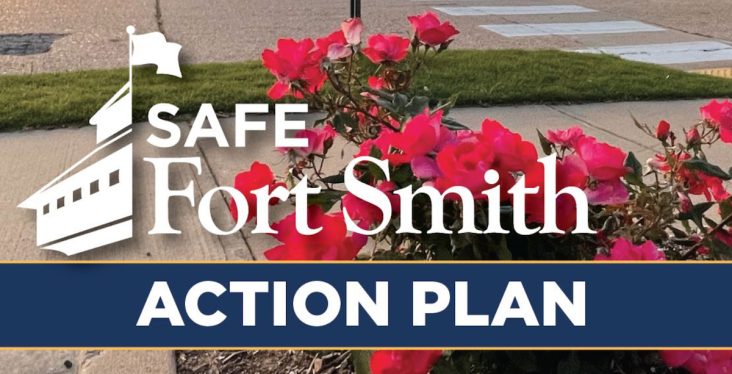Fort Smith Board moves forward with ‘Safe Streets’ grant
by August 27, 2024 7:50 pm 827 views

City Administrator Carl Geffken has been authorized by the Fort Smith Board of Directors to seek two federal grants to implement parts of a safety action plan designed to reduce traffic crashes that result in fatalities and injuries.
If the grants are approved, the city would spend a combined $310,191 to match the federal dollars. One grant would make safety improvements along Grand Avenue, and the other would make similar improvements on Kinkead and Park Avenues. It will be May 2025 before cities are notified about grant approvals.
The Board voted Tuesday (Aug. 27) 4-2 for the authorization to submit two federal grant applications but not after hearing from residents who allege the plan – and other mobility plans proposed by the city – is part of a socialist effort. Directors George Catsavis and Neal Martin opposed both grant applications.
Fort Smith City Director Lavon Morton noted that the grant being considered is simply to obtain federal help to pay for a plan to reduce accidents and has nothing to do with the broader mobility plan. He also said the grant gives the city a chance to have the federal government pay for a plan that the city will need with our without future federal funding.
“This will allow us to get a plan paid for that we need for the future, even if we spend our own money on it,” Morton said.
BACKGROUND
The city received a $280,000 Safe Streets and Roads for All grant from the U.S. Department of Transportation to develop a safety action plan for the city’s streets in 2023. The purpose of the plan, completed by engineering firm Burns & McDonnell, was to perform a system-wide analysis of the city’s transportation network and identify and prioritize safety improvement projects and strategies to reduce the number of traffic accidents and fatalities in the city.
Development of the plan also allows the city to be eligible for future grant funding to implement the safety improvements identified in the plan. The plan was first presented to the board on Aug. 13.
While not part of the grant applications discussed Tuesday, the city also is considering a broad mobility plan that includes a number of ways to help move people around the city safely and efficiently. The plan, also presented to the board Aug. 13, reviews existing conditions and previous planning documents and then looks at the expansion of mobility facilities including shared-use paved paths, mixed traffic alleyways, bicycle facilities, and pedestrian facilities.
The plan recommends a 10-year phasing plan that can inform the city’s focus and help prioritize which projects to pursue within certain time frames.
CITIZEN INPUT
Fort Smith attorney Joey McCutchen has said on social media posts that the federal grant is part of a “socialist Move Fort Smith Manifesto” and is part of an agenda by leftists to “eliminate natural gas, create equity (equality of trust, not opportunity) and sustainability.” Several citizens were concerned accepting federal grants to improve safe streets or build more trails would result in the city giving up its sovereignty or local autonomy.
Rep. Cindy Crawford, R-Fort Smith, spoke broadly against federal grants. She said the amount of citizen concern suggests“there is a problem here somewhere” and the board should stop, listen and “push back” on the safety plan and mobility plans. Some citizens also said the federal grant programs, especially under the administration of President Joe Biden, are part of a United Nations one-world government plan.
David Crowell, a Boy Scout troop leader, spoke in favor of having more trails and the benefits they present for younger people. Jo Elsken also spoke in support of efforts to improve street safety and build trails, saying she was “saddened” that many people are so fearful of change that they would oppose adding more amenities to the city. Deano Traywick spoke about the growth in cycling and the impact it has on cities that “embrace” the concept of “having more options” for all citizens. He said anyone who recently drove on roads, flushed a toilet, or drank water “benefited from federal grants. Some are cost-matched and some are not.”
